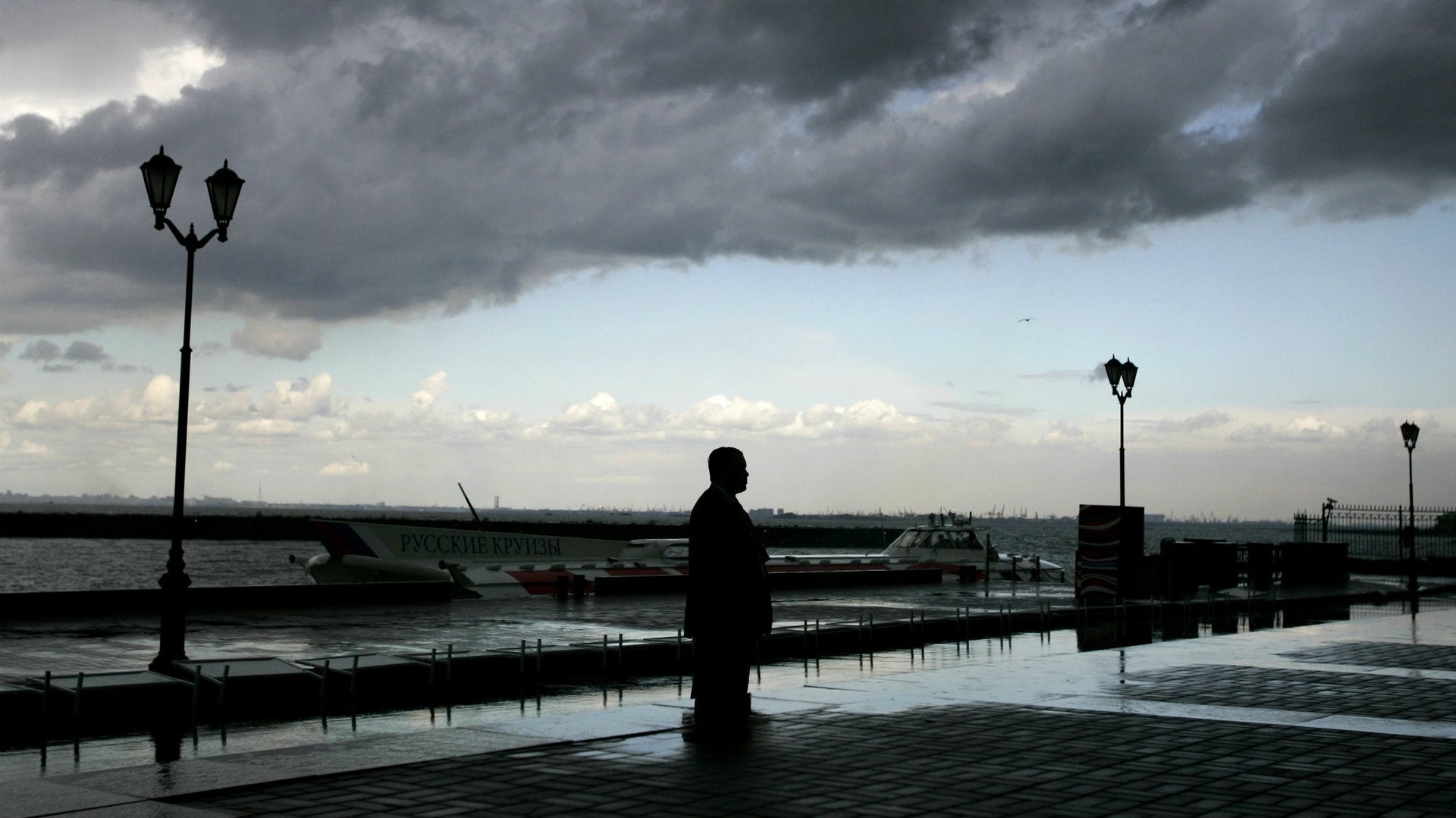The tactics Russian intelligence uses to harass foreign diplomats
Estonia’s foreign intelligence agency published a report (pdf) last week devoted entirely to the threats posed by Russia, with which it shares a border. That’s because Estonia deems Russia “the only country capable of posing a risk” to its sovereignty. Thus, “the emphasis is self-evident,” according the agency’s director-general, Mikk Maran.


Estonia’s foreign intelligence agency published a report (pdf) last week devoted entirely to the threats posed by Russia, with which it shares a border. That’s because Estonia deems Russia “the only country capable of posing a risk” to its sovereignty. Thus, “the emphasis is self-evident,” according the agency’s director-general, Mikk Maran.
Estonia’s report claims that Western diplomats, particularly from the US but also just about any NATO member state, are targets of “physical, verbal, or propaganda” attacks by Russian intelligence. “The goal of the FSB [Russia’s intelligence agency] is to intimidate and wear down diplomats by attrition and obstruct their everyday activities,” according to the report.
The report lists all the ways Western diplomats are harassed in Russia by intelligence agents. While several of the tactics described in the report have been reported over the years, collected together the list makes for eye-opening reading. Among the tactics:
- Puncturing the tires of diplomatic vehicles
- Entangling a target in accusations of theft. One way is using the “drop” ruse, where an agent walking ahead of a target drops a wallet or bag, and when the target returns it, he is accused of stealing from it
- Tipping off television crews to meetings between a diplomat and an activist, allowing the crews to burst in on the “secret” meeting and grill the parties on tape. One gay rights activist fled Russia in July 2015 after such an incident
- Breaking in to diplomats’ residences and leaving ”calling cards” such as rearranging the furniture or leaving lights on. Nothing is taken, leaving no doubt that it was not a robbery. In one case, the US defense attache’s pet dog was killed; in another, an intruder defecated on a diplomat’s living room carpet
- Outright physical altercations are rare, but happen, as when a US diplomat was tackled by a Russian police officer on the steps of the US embassy in Moscow. Russia said the diplomat had attacked the police officer, and was an undercover CIA agent; the Americans claim the opposite
If incidents of harassment are raised officially, Russia routinely denies them. Instead, the accusers are ”mocked” for harboring “sick fantasies” or concocting stories from a “dime-store detective novel,” according to the Estonian report. The US State Department has formally accused Russia of intensifying harassment of American diplomats.